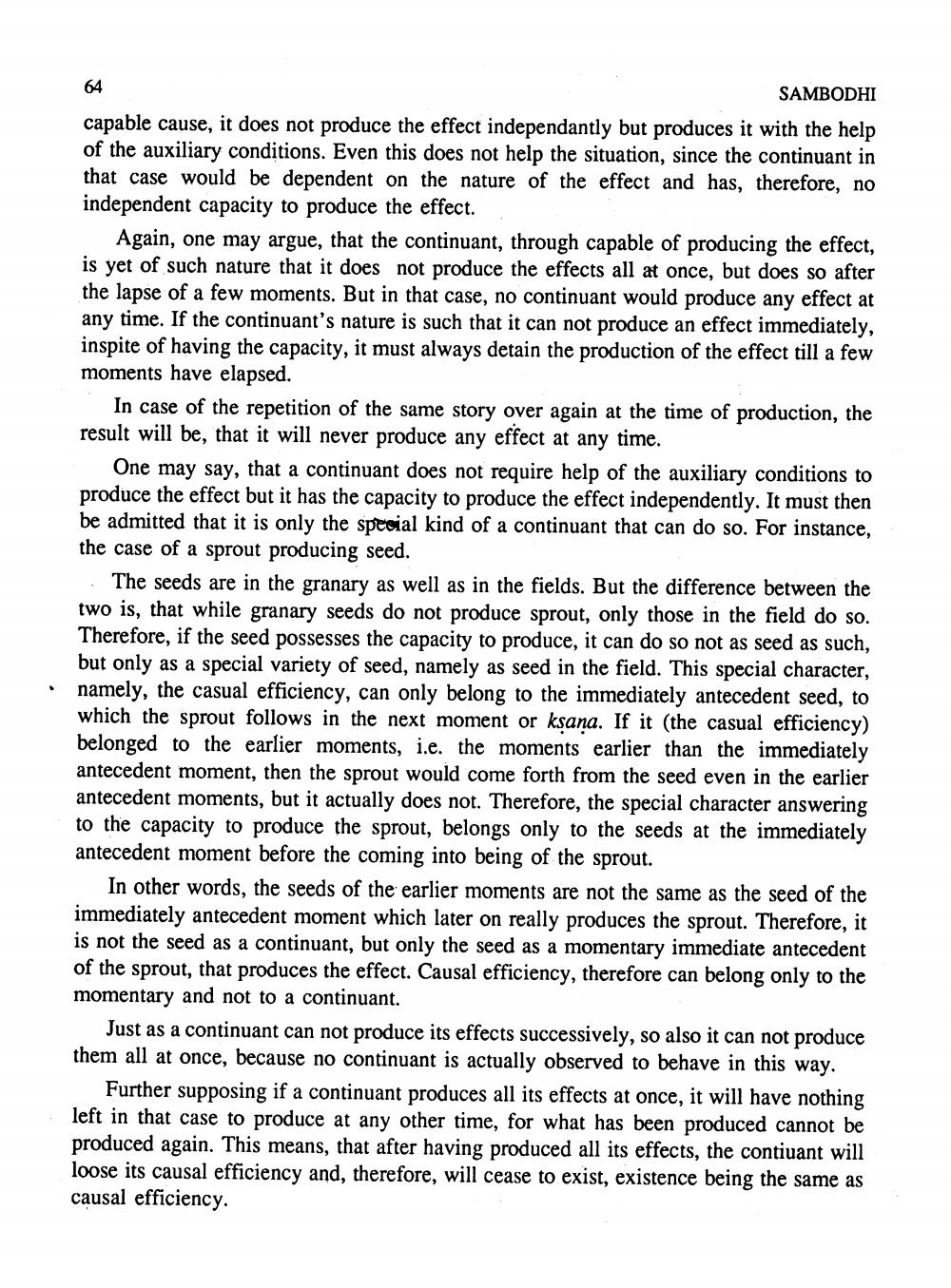________________
SAMBODHI capable cause, it does not produce the effect independantly but produces it with the help of the auxiliary conditions. Even this does not help the situation, since the continuant in that case would be dependent on the nature of the effect and has, therefore, no independent capacity to produce the effect.
Again, one may argue, that the continuant, through capable of producing the effect, is yet of such nature that it does not produce the effects all at once, but does so after the lapse of a few moments. But in that case, no continuant would produce any effect at any time. If the continuant's nature is such that it can not produce an effect immediately, inspite of having the capacity, it must always detain the production of the effect till a few moments have elapsed.
In case of the repetition of the same story over again at the time of production, the result will be, that it will never produce any effect at any time.
One may say, that a continuant does not require help of the auxiliary conditions to produce the effect but it has the capacity to produce the effect independently. It must then be admitted that it is only the special kind of a continuant that can do so. For instance, the case of a sprout producing seed.
The seeds are in the granary as well as in the fields. But the difference between the two is, that while granary seeds do not produce sprout, only those in the field do so. Therefore, if the seed possesses the capacity to produce, it can do so not as seed as such, but only as a special variety of seed, namely as seed in the field. This special character, namely, the casual efficiency, can only belong to the immediately antecedent seed, to which the sprout follows in the next moment or ksana. If it (the casual efficiency) belonged to the earlier moments, i.e. the moments earlier than the immediately antecedent moment, then the sprout would come forth from the seed even in the earlier antecedent moments, but it actually does not. Therefore, the special character answering to the capacity to produce the sprout, belongs only to the seeds at the immediately antecedent moment before the coming into being of the sprout.
In other words, the seeds of the earlier moments are not the same as the seed of the immediately antecedent moment which later on really produces the sprout. Therefore, it is not the seed as a continuant, but only the seed as a momentary immediate antecedent of the sprout, that produces the effect. Causal efficiency, therefore can belong only to the momentary and not to a continuant.
Just as a continuant can not produce its effects successively, so also it can not produce them all at once, because no continuant is actually observed to behave in this way.
Further supposing if a continuant produces all its effects at once, it will have nothing left in that case to produce at any other time, for what has been produced cannot be produced again. This means, that after having produced all its effects, the contiuant will loose its causal efficiency and, therefore, will cease to exist, existence being the same as causal efficiency.




